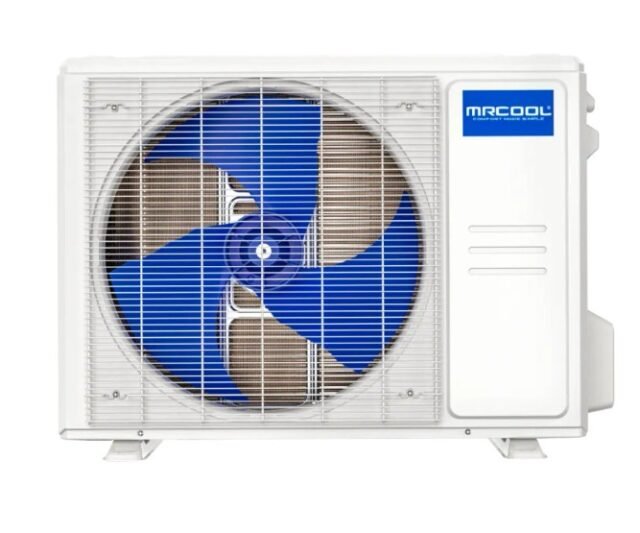When it comes to heating and cooling your home, the heat pump condenser plays a vital role. Many homeowners are unaware of the importance of this component in maintaining comfortable indoor temperatures throughout the year. Understanding how a heat condenser works can help you make better decisions about your HVAC system.
A pump condenser is the outdoor part of your heat pump system. Its main job is to release or absorb heat depending on the season. In cooling mode, it expels heat from inside your home to the outside. During heating mode, it absorbs heat from the outside air and transfers it indoors. This dual function makes heat pumps popular for energy efficiency.
How Does a Heat Pump Condenser Work?
The heat pump condenser works by circulating refrigerant through coils. When operating in cooling mode, warm air from inside your home passes over the indoor evaporator coil. The refrigerant inside absorbs this heat and carries it outside. At the condenser, the refrigerant releases the heat into the outdoor air.
In heating mode, the process reverses. The refrigerant absorbs heat from the outside air and carries it inside. Even when temperatures are low outside, heat pumps can extract heat and efficiently warm your home.
The condenser includes several key components: the compressor, condenser coil, and a fan. The compressor pumps the refrigerant through the system. The condenser coil allows heat exchange with the outdoor air. The fan helps move air over the coil to release or absorb heat.
Why Is the Heat Pump Condenser Important?
Without the condenser, a heat pump cannot complete the heating or cooling cycle. Its efficiency directly affects your utility bills and indoor comfort. A well-functioning condenser ensures your system runs smoothly and uses less energy.
Regular maintenance of the condenser keeps it free from debris such as leaves and dirt. When airflow is blocked, the condenser works harder and can overheat, reducing its lifespan.
Benefits of Using a Heat Pump Condenser
Heat condensers offer several advantages over traditional heating and cooling methods:
- Energy Efficiency: Heat pumps use electricity to move heat rather than generate it, cutting energy costs.
- Year-Round Comfort: They provide both heating and cooling in one system.
- Lower Carbon Footprint: Heat pumps produce fewer emissions than fossil fuel-based systems.
- Quiet Operation: Modern condensers operate quietly compared to conventional HVAC units.
Signs Your Condenser Needs Attention
Recognizing problems early can prevent costly repairs. Watch for these warning signs:
- Reduced airflow from vents.
- Unusual noises are coming from the outdoor unit.
- Increased energy bills without changes in usage.
- Frost buildup on the outdoor coil.
- Frequent system cycling on and off.
If you notice any of these, schedule a professional inspection promptly.
How to Maintain Your Condenser
Maintaining your condenser ensures optimal performance and extends its lifespan. Here are simple steps to keep it in top shape:
- Clean Around the Unit: Remove leaves, grass, and debris near the condenser regularly.
- Clear the Coils: Clean the condenser coils gently using a garden hose, avoiding pressure washers.
- Check the Fan: Inspect the fan blades for damage and ensure they spin freely.
- Replace Filters: Change indoor air filters monthly to improve airflow and system efficiency.
- Schedule Annual Service: A professional technician should inspect the entire system once a year.
Choosing the Right Heat Pump Condenser
Selecting the correct condenser size depends on your home’s square footage, insulation, and climate. Oversized units cycle frequently, wasting energy. Undersized units struggle to maintain comfort. Consult with a certified HVAC technician to get the proper fit for your needs.
Energy ratings such as SEER (Seasonal Energy Efficiency Ratio) and HSPF (Heating Seasonal Performance Factor) help compare models. Higher ratings indicate better efficiency and lower operating costs.
Cost Considerations
While heat pump condensers might have a higher upfront cost than traditional HVAC units, their energy savings often offset this over time. Incentives and rebates for energy-efficient equipment can reduce initial expenses.
Keep in mind that installation quality also affects system performance. Choosing a qualified installer ensures your heat pump runs as designed.
Conclusion
A heat pump condenser is a crucial part of a modern HVAC system. It manages heat exchange, providing efficient heating and cooling throughout the year. Regular maintenance and proper sizing keep your system running smoothly. Understanding how your condenser works helps you protect your investment and enjoy consistent indoor comfort. Don’t wait for problems—take care of your heat condenser today.
Ready to improve your home’s comfort? Contact us today to find the perfect heat pump condenser for your needs and save on energy costs year-round.







